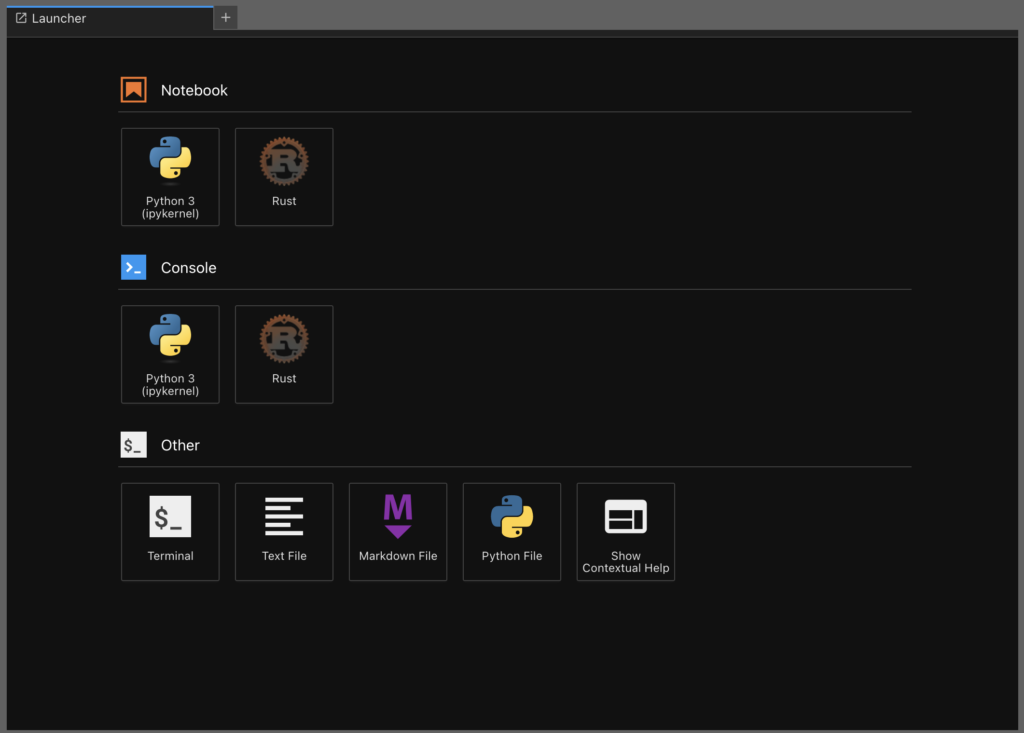First make sure that Nix package manager is installed on your system.
Here is a script that will install it for multiple users:
$ sh <(curl -L https://nixos.org/nix/install) --daemonThis code is from the official documentation.
Then create a new folder for your project and create a shell.nix file with the following contents:
{ pkgs ? import <nixpkgs> {}, system ? builtins.currentSystem }:
let
isDarwin = system == "x86_64-darwin" || system == "aarch64-darwin";
lib = pkgs.lib;
darwinFrameworks = if isDarwin then with pkgs.darwin.apple_sdk.frameworks; [
CoreServices
] else [];
in
pkgs.mkShell {
buildInputs = [
pkgs.rustup
pkgs.nodejs
(pkgs.python3.withPackages (ps: with ps; [
jupyterlab
ipykernel
]))
] ++ lib.optional isDarwin pkgs.libiconv ++ darwinFrameworks;
shellHook = ''
source ${pkgs.rustup}/etc/profile.d/rustup.sh
rustup update
rustup component add rust-src
if command -v cargo &>/dev/null; then
cargo install evcxr_jupyter
evcxr_jupyter --install
else
echo "Cargo is not available in the PATH. Please ensure Rust is installed and configured correctly."
fi
'';
}Activate the shell:
nix-shellRun Jupyter Lab:
jupyter labYou should now have an option to create notebooks with the Rust kernel.
